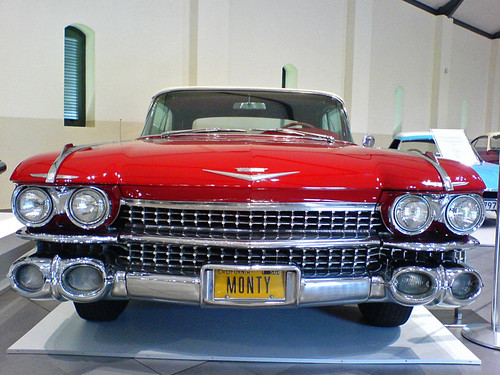Sitting on your hands, waiting for inspiration to light a fire under you can be a terrible state of being.
Wednesday, April 29, 2009
Heh, accidental overdose on meds, manic for 36 hours before crash
Sitting on your hands, waiting for inspiration to light a fire under you can be a terrible state of being.
Tuesday, April 28, 2009
Snuffleupagus, you've been to paradise, but you've never been to me...
You've moved like Harlow in Monte Carlo and showed 'em what you've got
You've been undressed by kings and seen some things that a woolly mammoth puppet ain't supposed to see
Snuffleupagus, you've been to paradise, but you've never been to me...
I know it is hard being the semi-imaginary friend of a nine foot tall bird on roller-skates. I know you have been tweaking, and juicing, and base-jumping. This is a Sesame Street intervention, brought to you by the letter "J". Put down the giant syringe of heroin, as large as a fire hydrant, and lets talk.
Monday, April 27, 2009
Rob my house, my Rottweiler will just shed fur on you...
 Rottweiler Puppy by Photos8.com
Rottweiler Puppy by Photos8.com My half-Rottweiler/half-Black Lab puppy girl, Susie, is pretty durn useless. She is a scared, anxious little thing, the rustling of a trash bag can send her scurrying. Susie is a sucker for anybody who tells her she is a good girl and gives her a pet on the head and a tasty treat, so professional burglars could get past her will no difficulty.
And, since Susie is such a fraidy-cat, she gets excited about anything she can bully, like a tiny baby in a stroller, or a very tiny dog, or an old weak person. Susie will bark and snap her little teeth, and make a total disgrace of herself. She is completely harmless, but it is still painfully embarrassing for me, the guy who is walking her through the neighborhood. My neighbors think I harbor a vicious dog -- they don't know that I just have a noisy fuzzy cream-puff on a leash.
A whole lot of uselessness, in a black fuzzy coat. That is my Susie dog!
Friday, April 24, 2009
Casual Cruelty wins the Poopie Prize
What offends me, unfortunately, are things I am guilty of -- guilty more often than I will initially admit. That is why I think that people who get in my face are doing me a favor, when they point out my hypocrisy. The Jesus Bobble-Head on my desk knows that I know better.
 Image via Wikipedia
Image via Wikipedia
Power Trips Power Trips are sick. If I go off on a Power Trip, please kick me in the pants. I will thank you for doing me that favor.
Taking credit, without taking responsibility Man, before you take even a tiny bit of credit, take the whole of the responsibility. And when you know how hard it is to take complete responsibility, you will be loath to take even a tiny bit of credit. You will just deflect the credit, and truthfully say that you were happy to help, the little bit you helped, to the best of your ability. Again, if I break this rule, feel free to kick my junk in the trunk; I will thank you for doing me that favor.
Thursday, April 23, 2009
Matter of National Security! I ate the Terrorist Cookies!
But the lure of the snacks is strong. I am not sure why I bother with excuses, my Baby just lifts a hand to smack me when she catches me with crumbs around my mouth. I really don't get a chance to get a word in, before receiving the dope-smack to the head.
Tuesday, April 21, 2009
One day I'll roll over my own foot in a 1948 Cadillac Series 62 Convertible
 Cadillac - Series 62
Cadillac - Series 62 Why not a 1948 Cadillac Series 62 Convertible? Modern cars are boring. In the future, we should drive less, so we will have to make those few miles count. This ride is the epitome of cruising in style.
I don't care for the color red. Mine will be a midnight blue. And no personalized license plate. The ride is already personalized enough.
Lessons from the Ming Dynasty: Can moralistic thinking lead to large system gridlock, crisis, breakdown?
Monday, April 20, 2009
Will chariable healthcare giving to the poor materialize?
Thursday, April 16, 2009
3 hours of Breakdancing, on a cardboard refrigerator box
Putting on my bandanna, and those leather fingerless gloves. Jheri curl in my hair. First I do that weird hopping/spinning move around the perimeter of the cardboard. Then, for the next three hours, spinning on my back, like a dying cockroach. And that wavy snake thing, on my belly. No way would I take a three hour nap. Totally breakdancing.
Wednesday, April 8, 2009
Kling's writings on health care get more ridiculous, amazingly
A partial defense for Arnold Kling's views on heathcare
Friday, April 3, 2009
Gack! Don't carelessly cut me and laugh while I am bleeding!
Wednesday, April 1, 2009
April Fools is "Take a Break from the Internet Day"
All Internet April Fool pranks are charmless because they have no heart. I remember a streaming video BBC ad starring Terry Jones from Monty Python, that seemed to be a documentary about flying penguins. That had heart, and was enjoyable. But that is one out of thousands. This is all for the best, because I should be able to get more work done today, since my favorite site, Reddit, is unreadable today.

![Reblog this post [with Zemanta]](http://img.zemanta.com/reblog_e.png?x-id=2e67bda5-0b8e-4301-8998-0faa70f8ea50)

![Reblog this post [with Zemanta]](http://img.zemanta.com/reblog_e.png?x-id=0a80a516-f24e-4d51-a596-387d7ba4d30a)
![Reblog this post [with Zemanta]](http://img.zemanta.com/reblog_e.png?x-id=73ddc29f-93e2-4f02-84c6-467796ab2d70)
![Reblog this post [with Zemanta]](http://img.zemanta.com/reblog_e.png?x-id=efe74df6-d455-4474-a654-88be3082c8c7)

![Reblog this post [with Zemanta]](http://img.zemanta.com/reblog_e.png?x-id=15265a7d-1afd-4c63-8602-adfc0b2a8fb9)
![Reblog this post [with Zemanta]](http://img.zemanta.com/reblog_e.png?x-id=c43b2c8b-bfc3-43c1-88e2-39bc4a1318fc)


![Reblog this post [with Zemanta]](http://img.zemanta.com/reblog_e.png?x-id=de8141ff-31cc-4c55-b65e-bc3d41c3efdb)